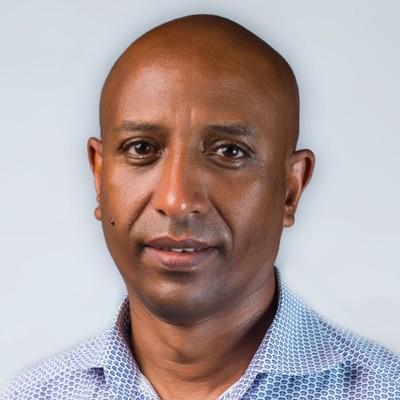Dawit Solomon
REGIONAL PROGRAM LEADER
Bio
Dr. Dawit Solomon holds a PhD in Geoecology/Soil Sciences from the University of Bayreuth in Germany, He has also a parallel post-doctoral training in biogeochemistry, biogeochemical cycling, environmental sciences and sustainable agriculture, from the University of Bayreuth and Cornell University in the USA. He has over 20 years of combined expertise in capacity building, research, international project development, implementation and engagement experience in sustainable agriculture, integrated environment and ecosystem rehabilitation and management, food and nutrition security, climate-change mitigation, adaptation and resilience working with diverse partners and stakeholders including farmers, government policy makers and international development partners in Africa, Europe, South and North America.
Dr. Dawit Solomon is East Africa Program Leader of CGIAR’s Research Program on Climate Change, Agriculture and Food Security (CCAFS), and staff member of the International Livestock Research Center (ILRI). Before Joining CCAFS, he was a Senior Research Associate and a Research Fellow at Atkinson Center for Sustainable Future, Cornell University from 2008 – 2017; where he was actively working in basic and applied sciences research in the areas of multi-element micro and nano-scale functional group biogeochemistry and carbon sequestration in temperate, sub-tropical and tropical ecosystems using archived samples and long-term chronosequences, sustainable agriculture, environment, food and nutrition security and climate change. He has also worked as a Research Scientist at various international agriculture, environment, and ecology projects in forest, grassland and agricultural systems in Eastern and Western Africa, Central Asia, the Brazilian Amazon, and in the Great Plains of North America between 2004 - 2008 and prior to that, he worked as lecturer and also head of soil sciences. His interests spans from cross-cutting, and cross-scale (from landscape to nano-level) regional and global biogeochemistry, carbon sequestration, soil fertility, agriculture, sustainable land management, environment, ecology, climate-smart food and nutrition security and climate change-related themes to developing institutional capacity, partnerships and engagement with research, institutions of higher learning, private sector industry, government and international institutions.